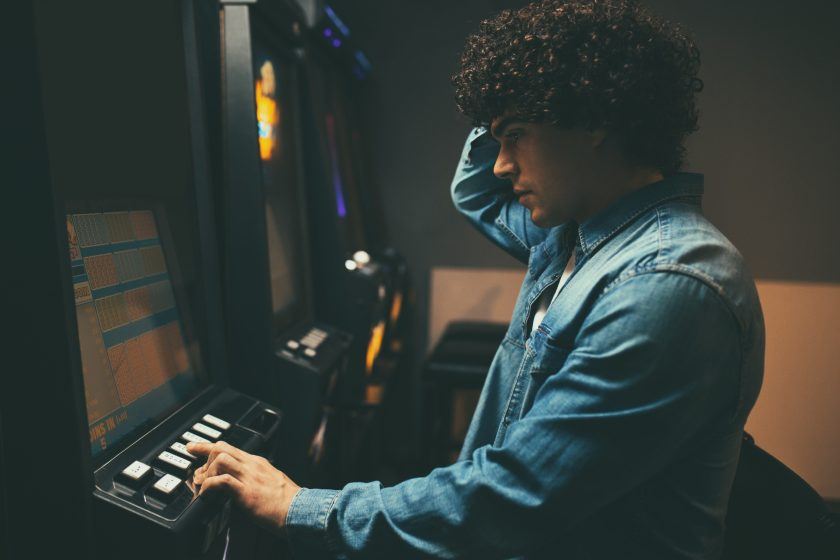Practical Strategies for Responsible Gambling and Knowing When to Stop

Understanding Responsible Gambling: Enjoyment with Boundaries
Gambling can offer excitement and enjoyment, much like going to a concert or an amusement park. The key is to see it as a paid form of entertainment. While it can be thrilling to win, the main goal should be having fun rather than chasing profits.
Establishing Financial Limits Before You Start
One of the smartest ways to avoid overspending is to create a budget for your gambling activities. Decide in advance how much you can afford to lose without compromising your daily needs or essential expenses. Stick to this amount, and if you reach your limit, walk away.
Managing Time Spent on Gambling
Casinos and gambling environments are designed to make you lose track of time. To keep gambling in check, set a strict time limit for yourself. When your allotted time is up, take a break and prioritize other hobbies or responsibilities.
Avoid Chasing After Your Losses
It's natural to experience ups and downs when gambling. The danger comes when you try to recover lost money by betting more than you originally planned-known as "chasing losses." This mindset often leads to even bigger losses and can spiral into problem gambling.
Keep Luck and Superstitions in Perspective
While having a lucky charm or favorite game can be part of the fun, it's important to remember that gambling outcomes are random. Superstitions don’t influence your chance of winning, and past results don’t alter future outcomes in gambling.
Don’t Get Caught by the Gambler’s Fallacy
The gambler's fallacy is believing that previous outcomes will affect future events-for example, expecting a different roulette color after a streak. In reality, each spin or game is independent. Don’t fall into the trap of thinking a win or loss is "due."
Know the Rules and Odds of Every Game
Getting familiar with the rules and odds of the games you play is crucial. Games like blackjack or craps typically offer better odds than slot machines or keno, but every game has bets with varying payout potentials. Choose games you enjoy, but take time to understand how they work and what your chances truly are.
Only Gamble with Discretionary Money
Gambling should never involve funds set aside for rent, bills, or other necessities. Borrowing money, using credit, or wagering what you can't afford to lose is a clear warning sign to stop.
Avoid Risky Decisions While Under the Influence
Alcohol or even the excitement of a friend’s hot streak can cloud your judgement when betting. Stay mindful: only gamble when you are sober and clear-headed in order to make thoughtful decisions.
Limit Gambling to Positive Times
It’s easy to fall into gambling as a way to escape stress or sadness, but this increases the risk of developing a problem. Make sure you gamble for fun and when you are in a good state of mind. If gambling feels like an escape from real-life challenges, consider taking a step back.

When gambling starts to feel out of control, or stops being enjoyable, it may be time to seek help and change your habits.
Steps to Overcome Problem Gambling
Recognizing When Gambling Has Become a Problem
The journey to quitting problem gambling starts with honest self-reflection. If you notice that gambling is disrupting your life or you have difficulty stopping, it's important to admit there's a problem. This realization can be difficult but is a crucial first step toward recovery.
Tapping into Support Systems and Community
Confide in someone you trust, such as a supportive friend or family member. Together, you can develop a plan to regain control. In addition, consider joining a support group or exploring online forums focused on gambling addiction, where sharing experiences can provide comfort and motivation.
Taking Steps to Cut Off Gambling Access
Take proactive measures like deleting gambling apps, blocking betting websites, or signing up for a self-exclusion program that restricts your access to online gambling. It may also be necessary to avoid land-based casinos or social groups centered around gambling until you feel more confident in your recovery.
Managing Personal Finances During Recovery
Ask a trusted individual to help you manage your finances, at least temporarily. This means letting them take control of your bank cards, manage your accounts, and help you avoid financial triggers. Seeking professional debt advice may also be helpful.
Staying Occupied with Positive Activities
Withdrawal and cravings are common when changing any habit. Fill your time with activities that provide enjoyment or relaxation-whether that’s exercise, learning a new skill, or practicing yoga and mindfulness. Keeping busy can make the transition away from gambling easier and more fulfilling.
For more guidance and resources on overcoming gambling addiction, seek dedicated help pages and trusted recovery organizations for verified advice.
Lead image credit: Getty Images













